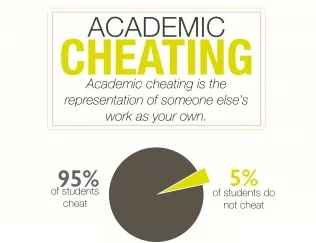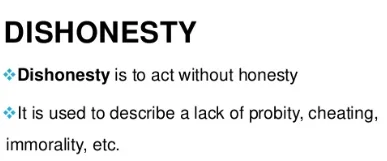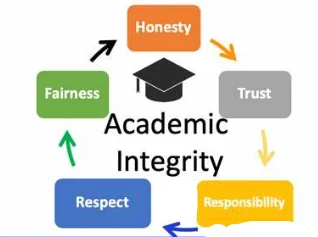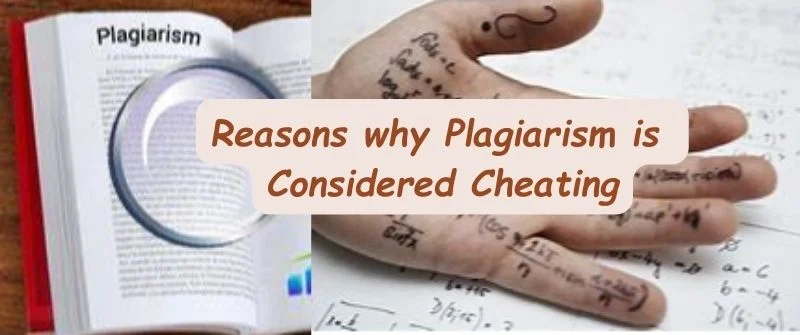While some regard plagiarism as lying, others see it as cheating. Plagiarism is misusing another person’s thoughts, words, or creative work without giving them due credit.
Since it is often regarded as academic dishonesty, it has long been a contentious issue in the academic community. This response will examine the many viewpoints on plagiarism and its ethical implications.
Is Plagiarism Considered Cheating?
Students may plagiarize for a variety of reasons, such as a lack of knowledge about correct citation and credit, time restraints, a fear of failing, and pressure to perform well.

Furthermore, some students may not understand the value of academic integrity and might see plagiarism as a quick way to finish tasks.
Plagiarism amounts to academic fraud. Plagiarism matches the concept of cheating, which involves getting an unfair advantage over others by breaching the rules.
The act of presenting someone else’s work as one’s own when a student plagiarizes offers them an unfair edge over their peers who have completed their own work.
Furthermore, plagiarism violates the core values of academic integrity, which include respect, honesty, and fairness.
By effectively lying about their skills and successes when they plagiarize, students damage the credibility of the educational system as a whole. It is crucial to comprehend the gravity of plagiarism and how it compromises academic integrity.
Reasons why Plagiarism is Considered Cheating
1. It violates academic integrity
Plagiarism is cheating because it compromises academic integrity which is the fundamental rule that directs academic community members’ ethical conduct as students, researchers, and scholars.
It includes decency, equity, and adherence to intellectual property rights. A student effectively violates this fundamental rule by presenting someone else’s work as their own and plagiarizing.
As it misrepresents the abilities and accomplishments of the plagiarist, this damages the credibility of the educational system as a whole.
Because they do not have to put in the same amount of time and effort as their peers to finish an assignment or project, students who use plagiarism have an unfair advantage.
Because plagiarism goes against the core values of academic honesty, it is considered serious cheating.
2. Lack of Effort and Dishonesty
Plagiarism is cheating because it involves a lack of effort and dishonesty. When students plagiarize, they take a shortcut by using someone else’s work instead of trying to produce their original work.

This violates the academic expectations of the course or assignment, which requires students to demonstrate their understanding and critical thinking skills through original work.
Plagiarism is also an act of dishonesty because it misrepresents the student’s abilities and accomplishments.
By presenting someone else’s work as their own, the student is dishonest about their knowledge and skills.
3. Unfair Advantage over other Students
Plagiarism gives students an unfair edge in terms of grades and recognition because they essentially present someone else’s work as their own.
Because other students who have invested the time and effort to create their original work are not offered the same opportunity, this calls into question the academic system’s fairness.
Plagiarism also violates the ethical standards of academic integrity, which demand that students be truthful and objective in their academic work.
It is regarded as significant because plagiarism offers a student an unfair edge over their classmates and compromises the fairness and integrity of the academic system.
4. Disrespect for Original Authors
Plagiarism gives students an unfair edge in terms of grades and recognition because they essentially present someone else’s work as their own.
Because other students who have invested the time and effort to create their original work are not offered the same opportunity, this calls into question the academic system’s fairness.

Plagiarism also violates the ethical standards of academic integrity, which demand that students be truthful and objective in their academic work.
Since plagiarism offers a student an unfair edge over their classmates and compromises the fairness and integrity of the academic system, it amounts to cheating.
Plagiarism vs Cheating: Which is worse?
Plagiarism gives students an unfair edge in terms of grades and recognition because they essentially present someone else’s work as their own.
Because other students who have invested the time and effort to create their original work are offered different opportunities, this calls into question the academic system’s fairness.
Plagiarism also violates the ethical standards of academic integrity, which demand that students be truthful and objective in their academic work.
We regard it as significant cheating because plagiarism offers a student an unfair edge over their classmates and compromises the fairness and integrity of the academic system.
Why Plagiarism is Considered Cheating?
1. Academic Reputation
The foundational premise that guides the educational system is academic honesty. It includes decency, faith, and accountability in academic endeavors.

Students who plagiarize compromise academic integrity by passing off someone else’s work as their own.
By misrepresenting the plagiarist’s skills and accomplishments, this practice damages the academic system’s credibility.
The foundation of the educational system is academic integrity, and infractions of this rule, such as plagiarism, can have major repercussions for pupils.
2. Ethical Issues
Students who plagiarize do so by taking, without acknowledgment or consent, the concepts, words, and artistic expressions of others. This conduct contravenes academic community ethics and erodes the mutual respect and trust between academics and students.
Because plagiarism entails dishonesty, intellectual theft, and a disregard for intellectual property rights, it presents ethical questions.
3. Lack of creativity
Plagiarism shows a lack of creativity and critical thinking abilities, hence it is cheating. The educational system demands that students create and articulate their thoughts, judgments, and defenses distinctively and originally.
When students plagiarize, they may deny themselves the chance to learn these skills and fail to demonstrate them.
Furthermore, plagiarism diminishes the value of education by turning it into a mindless exercise. They practice cheating by simply paraphrasing text and copy-paste rather than doing inquiry-based, exploratory, and discovery-based research writing.
Plagiarism Percentage that is Considered Cheating
The amount of plagiarism universally accepted as cheating varies depending on the context and rules established by particular institutions or teachers. There is no set proportion.

However, generally speaking, any plagiarism that entails passing off another person’s work as one’s own without due acknowledgment or credit can be considered cheating.
Academic integrity can be violated even in minor instances of plagiarism, which can have major repercussions, including poor grades, disciplinary actions, or expulsion.
Therefore, students must comprehend the fundamentals of academic integrity and make an effort to create their own unique work. You can use free plagiarism checkers for students to check your work and escape plagiarism completely.
Is plagiarism a form of Lying but not Cheating?
Plagiarism can be viewed as lying because it entails presenting someone else’s work as one’s own without giving proper credit or attribution. In this light, plagiarism can be viewed as a deceit that falsely claims to be the original creator of a piece of work.
It is crucial to remember that academic misconduct, which often involves cheating, includes plagiarism. By receiving credit for work they did not create, students who plagiarize are breaching the rules of academic integrity.
They get an unfair edge over other pupils, and the principles of accountability, honesty, and trust are undermined inside the educational system.
Therefore, even though some amount of lying may be involved, plagiarism is also regarded as a form of cheating. Students must comprehend the significance of plagiarism and how damaging it can be to their academic and professional lives.
More importantly, students can avoid plagiarism dangers and demonstrate their knowledge and critical thinking abilities by adhering to the standards of academic honesty and producing their original work.
